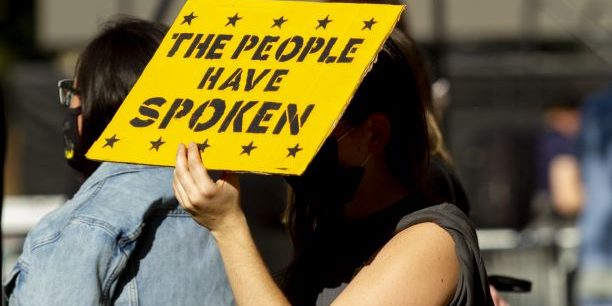Despite receiving barely 12% of the vote from eligible workers in Amazon’s high profile Bessemer, Alabama facility, the RWDSU is pulling out all the stops to try to overturn in the courts the free choice of the employees. The union has leveled multiple allegations against the company at the National Labor Relations Board (NLRB). Essentially the RWDSU union officials are now arguing that Amazon’s employees can’t be trusted to vote in their own interests. On May 7, in response to a formal request by the union, the NLRB began hearing arguments for why the election results should be thrown out.
Union Vote Unfairly Influenced
Union officials claim Amazon unfairly influenced the election, although workers were bombarded with pro-union messaging from the national media, rallies outside the facility, and even President Joe Biden. Amazon exercised its free speech rights to conduct a campaign and tell its side of the story.
It is important to note that any union election campaign is heavily regulated, and the traditional view of “free speech” does not apply to companies. Companies are in fact very restricted in what they can and cannot say in these campaigns. All companies should seek professional campaign advice or management from their legal counsel and firms like NLRA who ensure that any messaging presented to the employees avoids legal challenges.
Their legal challenge in front of the NLRB clearly says the RWDSU believes the workers were incapable of weighing the two sides of the argument. Frankly, insulting those whom you seek to represent as incompetent or so unintelligent or unsophisticated that they can’t hear two sides of an argument and make a free choice is despicable.
Vote by Mail Untrustworthy
After an entire year of arguing that mail ballots are the most secure and most fair way to conduct a union election, the union now claims that mail ballots are in fact not secure or trustworthy. The union argued in its filing that a U.S. Postal Service mailbox near the facility made some workers think the company would see their votes. The box was installed at the company’s request to ensure employees would have ready access to the U.S. Mail and be able to cast their ballots. It is a federal crime for anyone to tamper with the U.S. Mail.
Vote Anonymity
The union was also concerned that the mailbox being placed outside the facility would somehow taint the anonymity of the votes. Ballots are to be marked, folded, placed in a colored envelope, then placed in another envelope which is sealed and signed. The signatures are matched against an eligible voter list then the envelope is opened and the unopened colored envelopes are all comingled and mixed up before being open. The chance of lost anonymity is virtually non-existent.
The union officials’ sudden high value on anonymity is quite surprising! RWDSU bosses have consistently opposed secret ballot union elections. The union is on record hundreds of times supporting “card check” unionization. This is a process by which union organizers can approach individual employees, using any tactic to gather that signature, including misleading and outright lying to an employee about the purpose of the signature. These signatures would then be used “votes” in support of unionization. This is an integral portion of the PRO Act being proposed in Congress now, and the RWDSU is a full-throated supporter of the legislation.
Double Standard
So, while union officials argue that if workers have the option to place a sealed envelope into a USPS mailbox next to their workplace, they may be unduly influenced, its professional organizers personally pressure them into signing cards to count as “votes” for unionization. Also, the union’s professional organizers, spending millions of dollars to influence the workers into voting yes, cannot be countered by a company campaign balancing the process.
Last Resort
Having failed to convince workers to vote yes either through coercion or through selling any benefits to unionization, the RWDSU now looks to the legal process. Even if it prevails at the NLRB, this fight is likely to go on for some time to come with both sides exhausting appeals. The good news, for now, is that the employees’ choice remains. They are free from coerced unionization.








